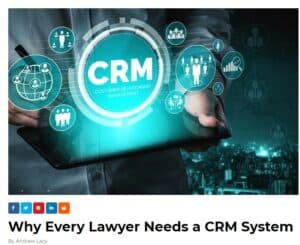Key Highlights
- Federal law does not require employers to provide break rooms, but if offered, they must meet OSHA sanitation and safety standards.
- Pennsylvania and New Jersey laws do not mandate break rooms but include specific break time requirements, particularly for minors.
- Employers must maintain clean and safe break areas with access to drinking water, seating, and food storage facilities if provided.
- Employees should understand both federal and state-specific rules about breaks and break room usage.
- Proper compliance ensures a healthier and legally sound workplace for everyone.
Why Break Rooms Matter
Break rooms are more than just a convenience; they play a vital role in fostering employee well-being and productivity. A designated space for employees to relax, eat, and recharge can:
- Improve employee morale and focus by providing a needed respite from work tasks.
- Promote healthier eating habits through access to food storage and preparation tools.
- Support compliance with state and federal labor laws, reducing the risk of legal issues for employers.
While break rooms are not mandated by law, employers who provide them must adhere to sanitation and safety regulations. Understanding these laws is critical to creating a fair and compliant workplace.
Federal Break Room Guidelines
Fair Labor Standards Act (FLSA)
The FLSA does not require break rooms but governs how breaks are handled:
- Short breaks (5–20 minutes) must be paid as hours worked.
- Bona fide meal periods (30 minutes or more) are generally unpaid if employees are completely relieved of duty.
- Nursing mothers are entitled to reasonable unpaid breaks and a private, non-bathroom space for expressing breast milk under FLSA updates.
OSHA Requirements
OSHA does not mandate break rooms but requires employers to:
- Maintain any food consumption areas in a clean and sanitary condition.
- Provide clean drinking water and proper waste disposal facilities.
Pennsylvania Break Room and Break Time Regulations
Pennsylvania follows federal guidelines and does not mandate break rooms. However, employers must:
- Provide a safe and sanitary area if break rooms are offered.
- Accommodate nursing mothers per FLSA requirements.
Meal and Rest Breaks in Pennsylvania
- For Adults (18+): Pennsylvania law does not require meal or rest breaks. However, if provided, breaks of less than 20 minutes must be paid under FLSA.
- For Minors (Under 18): Pennsylvania mandates a 30-minute meal break for minors after five consecutive hours of work.
New Jersey Break Room and Break Time Regulations
New Jersey has slightly more comprehensive laws regarding employee accommodations:
Nursing Mothers
Under New Jersey’s Lactation Accommodation Law, employers must:
- Provide a private, non-bathroom space for expressing breast milk.
- Offer reasonable unpaid breaks for this purpose.
Meal and Rest Breaks in New Jersey
- For Adults (18+): New Jersey law does not require employers to provide meal or rest breaks, but if breaks are offered, short breaks (5–20 minutes) must be paid.
- For Minors (Under 18): Minors are entitled to a 30-minute meal break after five continuous hours of work.
Employer Responsibilities for Break Rooms
Although break rooms are not mandated, New Jersey employers must:
- Ensure that any provided break areas are clean and safe.
- Offer basic amenities such as clean drinking water and food storage options if meals are consumed on-site.
Employer Obligations in PA and NJ
Essential Amenities
Employers in both states should equip break rooms with:
- Clean Drinking Water: Access through fountains, coolers, or bottled water.
- Seating and Tables: Comfortable areas for employees to relax during breaks.
- Food Storage and Preparation: Refrigerators and microwaves to support healthier eating habits.
Safety and Sanitation
Employers must meet OSHA standards by:
- Regularly cleaning surfaces and waste disposal facilities.
- Ensuring safe and functional appliances for food preparation.
- Providing proper handwashing facilities to maintain hygiene.
Employee Rights in PA and NJ
Employees in both states should expect:
- Access to Clean and Safe Break Areas: If provided, break rooms must comply with safety and hygiene standards.
- Uninterrupted Break Time: Employees should not be required to work during designated rest periods.
- Support for Nursing Mothers: Employers must provide private, non-bathroom spaces and unpaid breaks for expressing breast milk.
Employees who believe their rights have been violated can file complaints with:
- Pennsylvania Department of Labor & Industry
- New Jersey Department of Labor and Workforce Development
Compliance Tips for Employers
To ensure compliance and foster a positive work environment, employers should:
- Update Policies: Reflect federal and state break laws in employee handbooks.
- Train Managers: Ensure supervisors understand how to implement break and accommodation policies correctly.
- Consult Legal Experts: Work with HR or legal professionals to address state-specific requirements.
Conclusion
Break rooms and break time policies play a vital role in creating a compliant and equitable workplace. While federal law does not mandate break rooms, Pennsylvania and New Jersey employers must adhere to specific guidelines when providing them. Understanding the laws regarding rest breaks, nursing accommodations, and break room safety ensures both employees and employers benefit from a healthier, more productive work environment.
For more information or assistance with compliance, contact our experts today.
Frequently Asked Questions
Are break rooms required in Pennsylvania or New Jersey?
No, neither state requires break rooms. However, if offered, they must meet OSHA safety and sanitation standards.
What rights do nursing mothers have in PA and NJ?
Both states follow federal guidelines requiring employers to provide a private, non-bathroom space and unpaid breaks for expressing breast milk.
Can employees waive their right to breaks?
No, employees cannot waive their rights to breaks, particularly those required for minors or nursing mothers under state and federal law.















